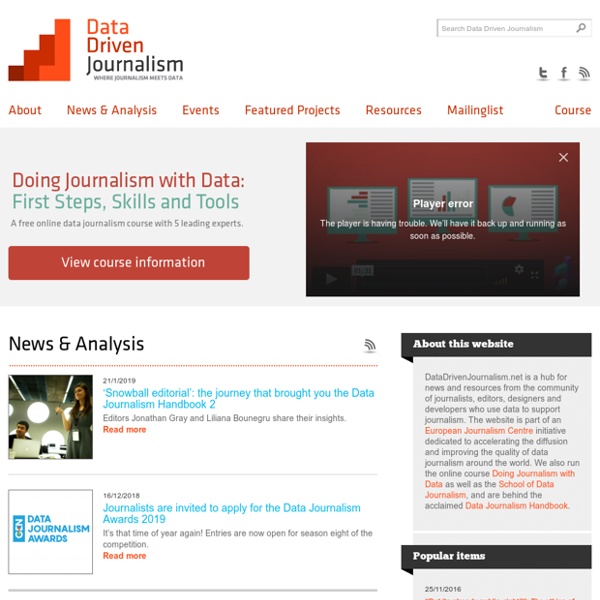



Poynter. | Standing for journalism, strengthening democracy | Journalism training, media news & how to's OUseful.Info, the blog… Use Templates to Make News Apps Quickly Coding is expensive and slow, journalism should be cheap and fast. This is the main problem I face as a data journalism producer. My responsibility is to produce news apps for Helsingin Sanomat, a main daily newspaper in Finland. When there is a breaking news event, we have about five hours to come up with an idea, get the data and publish the news app. In most cases it would be too slow to start from scratch. To overcome this problem, we have been creating kind of a Style Book for data journalists. Ideally, we just insert new set of data to template and publish it. Common example of this approach is a map made with Google Fusion Tables. The templates we use are mainly built by our data desk. The Style Book is currently a page on our internal Wiki. Below, I’ve listed some of the templates we use. Timeline. Animated graph. Animated quotes. Counter. Interactive maps. Fourfold table. Graphs. Forms. Scorecards. Voting tools. Roll-over images. Special layouts for web.
VIS. Visual Investigative Scenarios platform: Pages كينيا ومولدوفا: دروس للبلدان النامية في البيانات المفتوحة | البيانات في عالم ما زال العديد من بلدانه الأكثر ثراء لا يتيح لمواطنيه الإطلاع بسهولة ويسر على البيانات الحكومية، تتقدم كينيا ومولدوفا لتتصدرا الصفوف. فخلال الأشهر الستة الماضية، تجاوز هذان البلدان سجلا قديما من التعتيم بإنشاء مواقع إلكترونية تتيح إمكانية الوصول إلى البيانات، إذ يسهل - على سبيل المثال - الإطلاع على معلومات الموازنة والتعداد ونقلها. وفي الشهر الجاري، ألقى خبراء في مجال البيانات المفتوحة نظرة عن قرب على هذه المبادرات الرائدة بحثاً عما قد يفيدهم من نصائح بشأن أفضل السبل لمساعدة بلدان نامية، مثل منغوليا ونيجيريا ورواندا، كي تخطو نحو حكومة أكثر انفتاحاً. وأبدى هؤلاء الخبراء إعجابهم بمجتمع جديد لممارسي البيانات الحكومية المفتوحة على موقع التواصل الإلكتروني LinkedIn الذي يربط بين الحكومات وخبراء علنية البيانات. وكان البنك الدولي قد أتاح للجمهور الإطلاع على قدر كبير من بياناته قبل أكثر من عام في إطار جهوده الرامية إلى تعزيز تداول المعلومات وتشجيع المبتكرين على وضع حلول برمجية للمشكلات الإنمائية. جهود البيانات المفتوحة بحاجة إلى "مناصر" من الحكومات إيجاد قناة مستدامة لضخ البيانات
New Media Literacies — Learning in a Participatory Culture Sapping Attention Blog | The Noun Project, Investigative Journalism Icons now Available Data Visulization Course Materials This resource page features course content from the Knight Center for Journalism in the America's massive open online course (MOOC), titled "Data Visualization for Storytelling and Discovery." The four-week course, which was powered by Google, took place from June 11 to July 8, 2018. We are now making the content free and available to students who took the course and anyone else who is interested in learning how to create data visualizations to improve their reporting and storytelling. The course was taught by Alberto Cairo, He created and curated the content for the course, which includes video classes and tutorials, readings, exercises, and more. The course materials are broken up into four modules: Module 1: Offers an introduction to visualization: what it is, how it works, and what ethical considerations are involved in its design. As you review this resource page, we encourage you to watch the videos, read the readings, and complete the exercises as time allows. Goals Videos 1. 2. 3.
Citizens ask for access to public data - New Brunswick - CBC News | the internet of things, open data and the city